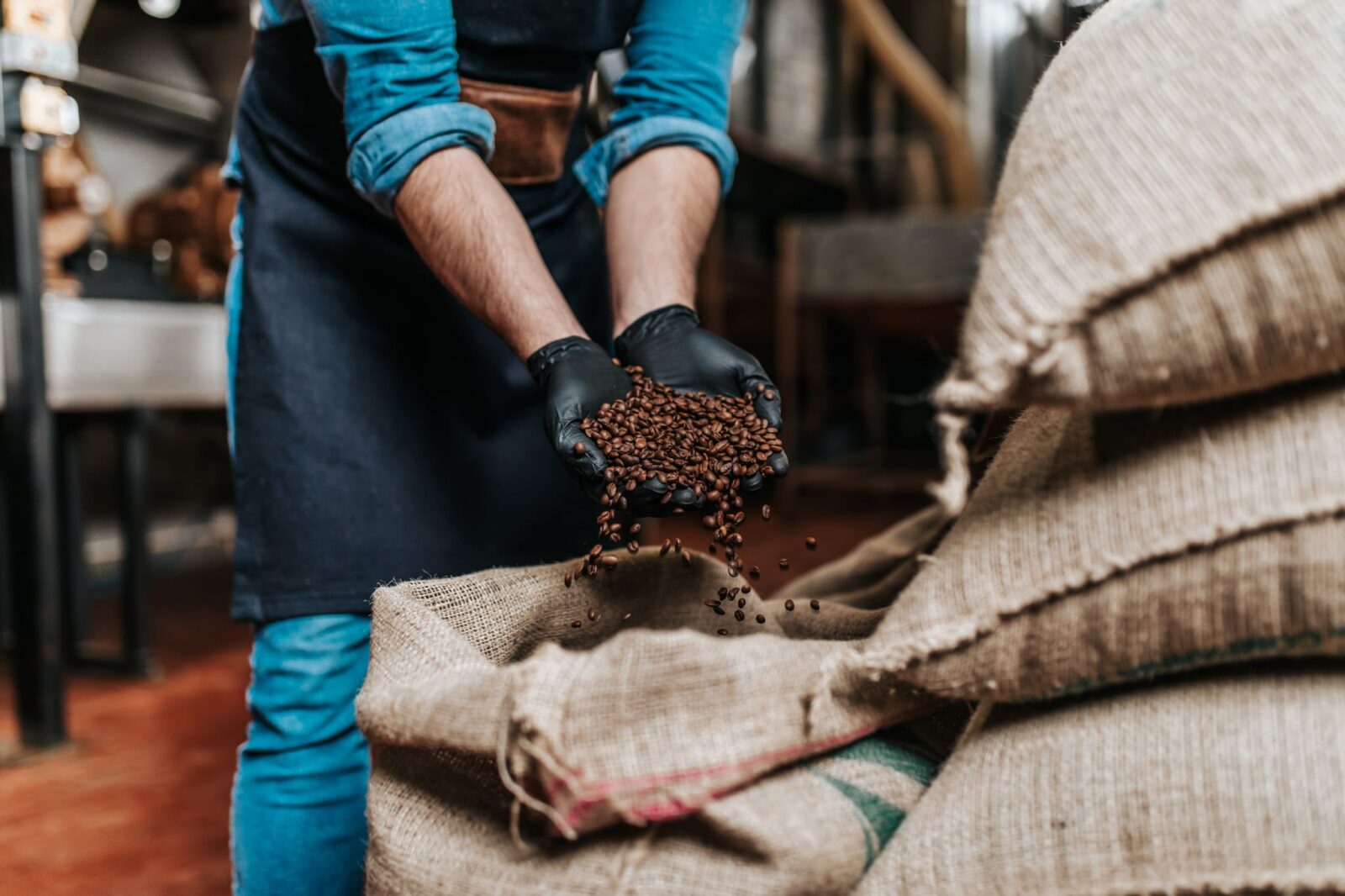Budding cotton scientist set on creating a crop that can cop heat-stress
 EMERGING INDUSTRIES / Wednesday, 22 November 2023
EMERGING INDUSTRIES / Wednesday, 22 November 2023
Brewing new opportunities for Australia’s emerging coffee industry
Key Points
- Australian grown coffee industry looking at new promotion opportunities to build demand.
- A clearly defined ‘taste of place’ will be a key driver for this growth.
- New research has confirmed Australian-grown coffee has unique and measurable characteristics giving it a ‘taste of place’.
- World first coffee character wheel launched by AgriFutures Australia and Southern Cross University.

Australians love their coffee, with more than six billion cups consumed annually.
The coffee bean market in Australia is worth $1billion, however with the majority of beans sourced internationally, Australia’s home grown coffee industry is looking at new opportunities to build national demand through the promotion of Australia’s unique ‘taste of place’.
The Australian coffee growing industry is long established and today consists of about 50 growers split between North Queensland, south-eastern Queensland and northern New South Wales, who have successfully created a distinct and high-quality product that services small domestic, tourist and specialist export markets.
Australian-grown coffee has a unique terroir, commonly known as the “taste of place”, and while the terroir of wine is well-known and provides competitive advantages for high-quality wine producers, it is not so well-known for coffee.
AgriFutures Australia, Senior Manager Emerging Industries, Dr Olivia Reynolds said work being carried out by AgriFutures Australia, as part of its remit to build the prosperity of emerging rural industries, was looking to address that disparity.
“New research completed in conjunction with Southern Cross University, Processing Methods Bootcamp and the Australian coffee industry has confirmed that Australian-grown coffee has unique and measurable terroir with a sweeter, more nutty and fruity flavour that coffee drinkers appreciate and enjoy,” Dr Reynolds said.
“Producing clear flavour profiles, depending on where and how Australian coffee beans are grown, will assist coffee producers in defining and communicating the unique characteristics and flavours of their coffee.
“Importantly, consumers can start to identify their preferences depending on where that coffee is produced, much in the same way as wine.
“We believe this is a really important step forward globally. But in particular for an emerging coffee industry in Australia that will reduce our reliance on imports and give consumers an opportunity to support home grown Aussie produce and its unique terroir, and what better way than through a locally produced flat white.”
Defining terroir of Australian coffee report
As part of the research, AgriFutures Australia and Southern Cross University produced the Defining terroir of Australian coffee to increase demand and investment report that summarises an investigation into coffee terroir, especially the terroir of Australian-grown coffee.
More than 100 Australian-grown single-origin green beans from 28 farms were analysed, along with an additional 50 international single-origin green beans. The green beans were roasted using a fixed roast profile to ensure equal treatment and then tasted by 15 coffee panels across Australia. The panellists included coffee growers, green bean buyers, importers, roasters, baristas, trainers and coffee judges. These coffees were also analysed chemically to provide a unique fingerprint.
In a global first, this project has developed a Coffee Character Wheel to standardise acidity, mouthfeel and aftertaste sensory terms, allowing us to define coffee terroir around the world.
Research Fellow of plant science at Southern Cross University, Dr Simon Williams, said the research has confirmed Australian-grown coffee has unique measurable terroir to assist with consumer choice.
“The aim of the Coffee Character Wheel is to suggest and unify the vocabulary used for describing the acidity, mouthfeel, aftertaste, and overall characteristics of coffee that are not specifically flavour,” Dr Williams said.
“Using the Coffee Character Wheel, Australian-grown coffee has been described as having a low-medium intensity acidity with citric acid and malic acid characters similar to apple and berry, a smooth texture and light medium body mouthfeel, a medium-long aftertaste and flavours described as fruity and nutty.
“It is this sort of information that will allow us to inform consumers that Australia is a sophisticated and established coffee producer with enormous potential based on the unique characteristics of the region where that coffee is grown and produced,” Dr Williams added.
“We firmly believe that the Australian coffee industry can be an absolute success story, helping to strengthen the profitability, productivity, competitiveness and sustainability of our rural industries and the regional communities who work on the land,” Dr Reynolds said.
“Australia has a strong reputation for our clean and green food and fibre production, and coffee can have an important role in telling that story in key international export markets.
“We look forward to toasting the future success of coffee growers with a double espresso from North Queensland, south-eastern Queensland or northern New South Wales, depending on your personal coffee preferences.”
Click to download the Defining Terroir of Australian Coffee to Increase Demand and Investment report
Media enquiries:
Ingrid Lee-Scott
Account Manager, Dentsu Creative
| 0410 047 767
Latest News
-
Budding cotton scientist set on creating a crop that can cop heat-stress WORKFORCE AND LEADERSHIP / 22.11.23
WORKFORCE AND LEADERSHIP / 22.11.23 -
Essential tools and proactive biosecurity measures for sustainable Sea Cucumber industry growth EMERGING INDUSTRIES / 22.11.23
EMERGING INDUSTRIES / 22.11.23 -
New workforce strategy for Australia’s $8 billion+ chicken meat industry CHICKEN MEAT / 22.11.23
CHICKEN MEAT / 22.11.23 -
‘One-size-fits-all will no longer suffice’: AgriFutures Australia reveals new revenue opportunities for rural industries NATIONAL CHALLENGES AND OPPORTUNITIES / 22.11.23
NATIONAL CHALLENGES AND OPPORTUNITIES / 22.11.23






